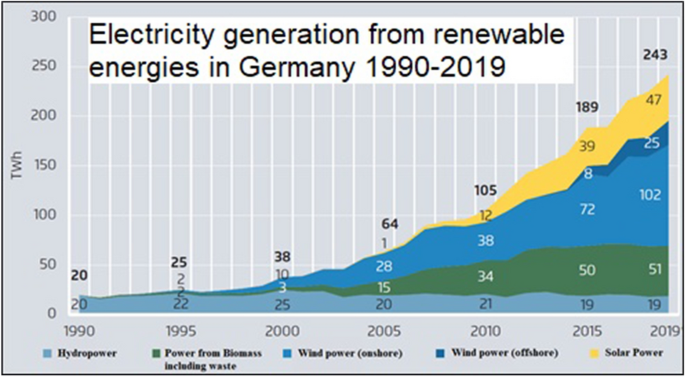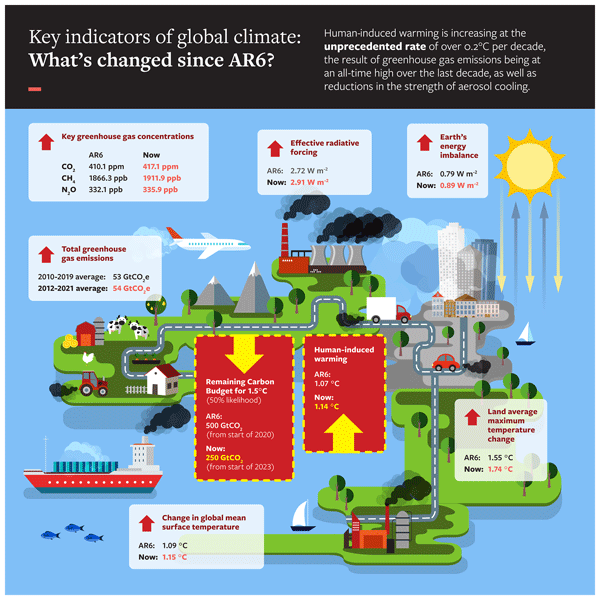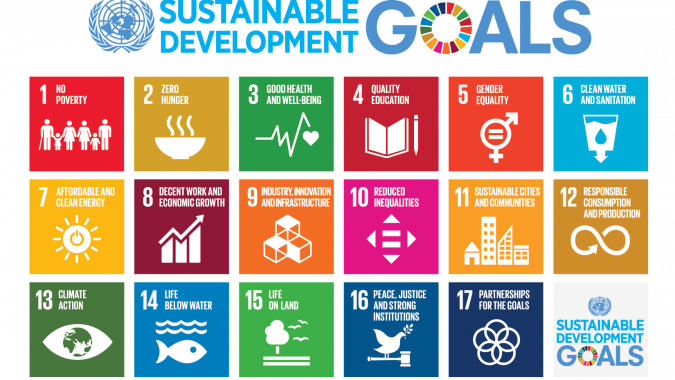Introduction
In an era where environmental sustainability is of paramount importance, Germany stands out as a shining example of a nation committed to green economy principles and sustainable practices. With a strong emphasis on renewable energy, eco-friendly technologies, and proactive environmental policies, Germany has not only transformed its domestic landscape but also played a pivotal role in shaping global environmental agendas. In this article, we will explore how Germany’s influence extends far beyond its borders, impacting global environmental policies and fostering a more sustainable future for the planet.
In an era where environmental sustainability is of paramount importance, Germany stands out as a shining example of a nation committed to green economy principles and sustainable practices. With a strong emphasis on renewable energy, eco-friendly technologies, and proactive environmental policies, Germany has not only transformed its domestic landscape but also played a pivotal role in shaping global environmental agendas.
Germany’s journey towards sustainability began with a groundbreaking commitment to renewable energy sources, such as wind, solar, and biomass. The Energiewende, or energy transition, marked a monumental shift in the country’s energy production, reducing reliance on fossil fuels and significantly lowering carbon emissions. This initiative not only serves as an inspiration for other nations but also demonstrates the feasibility of transitioning to clean energy on a large scale.
The country’s dedication to sustainability goes beyond energy. Germany has championed the concept of a circular economy, promoting resource efficiency, recycling, and waste reduction. These principles are not only economically advantageous but also help mitigate the environmental impact of industrial processes, setting a precedent for responsible global resource management.
Furthermore, Germany’s proactive environmental policies have influenced international agreements and initiatives. The Paris Agreement, aimed at combatting climate change, benefited from Germany’s strong support and leadership. The country’s contributions to climate finance and emissions reductions targets have set a high bar for climate action on the global stage.
Germany’s role as a global environmental leader extends to its industrial prowess. The country’s manufacturing sector emphasizes sustainability and eco-friendly production methods. This not only reduces the carbon footprint of German products but also encourages similar practices in supply chains worldwide.
As we explore Germany’s influence in this article, it becomes evident that its commitment to sustainability transcends borders. It shapes global environmental policies, fosters international cooperation, and paves the way for a more sustainable future for the planet. Germany’s leadership in environmental sustainability serves as a guiding light for nations seeking to strike a balance between economic growth and ecological responsibility, underscoring the urgency and significance of a green and sustainable future for all.
To delve further into this matter, we encourage you to check out the additional resources provided here: Building back better: A sustainable, resilient recovery after COVID-19
Germany’s journey towards a green economy and sustainable practices has been characterized by visionary policies and steadfast commitment. Several key factors have contributed to its leadership in this field:
Germany’s journey towards a green economy and sustainable practices has been characterized by visionary policies and steadfast commitment. Several key factors have contributed to its leadership in this field:
Ambitious Renewable Energy Transition: Germany’s Energiewende (energy transition) stands as a global benchmark. The nation has made significant strides in transitioning from fossil fuels to renewable energy sources like wind, solar, and biomass. The commitment to phase out nuclear power demonstrates its resolve to prioritize clean and sustainable energy production.
Stringent Environmental Regulations: Germany has some of the world’s strictest environmental regulations, which ensure that industries operate with a strong focus on sustainability and emissions reduction. These regulations serve as a model for other nations aiming to curb pollution and promote eco-friendly practices.
Investment in Green Technology: Germany is a hub for green technology innovation, particularly in areas such as electric mobility, energy-efficient construction, and sustainable agriculture. Government incentives and private-sector investments have spurred the development and adoption of these technologies.
Circular Economy Initiatives: Germany’s commitment to a circular economy, where resources are conserved, reused, and recycled, is evident in its comprehensive waste management and recycling programs. This approach minimizes waste, conserves resources, and reduces environmental impact.
Strong Public Support: Sustainability enjoys broad public support in Germany. This societal commitment is reflected in consumer choices, activism, and advocacy for environmentally responsible policies. Public pressure has been instrumental in driving sustainability efforts.
Green Finance and Investment: Germany has a growing focus on sustainable finance and investment practices. Financial institutions are increasingly considering environmental and social factors in their decision-making, channeling capital toward environmentally friendly projects.
Global Diplomatic Engagement: Germany actively engages in international climate agreements and environmental diplomacy. It has played a pivotal role in shaping global responses to climate change and advocating for international cooperation on sustainability issues.
Education and Awareness: Sustainability education is integrated into the German school curriculum, fostering a generation that values and understands environmental responsibility. This emphasis on awareness and education ensures a continuous commitment to sustainable practices.
Corporate Responsibility: Many German companies prioritize sustainability in their business strategies. They invest in eco-friendly technologies, adopt ethical supply chain practices, and strive to reduce their carbon footprint, setting industry standards for corporate social responsibility.
Collaboration and Knowledge Sharing: Germany promotes international collaboration and knowledge sharing on sustainability. It actively participates in forums and partnerships, exchanging best practices and expertise with other nations.
Germany’s leadership in green economy and sustainability demonstrates that a transition to more environmentally responsible practices is not only achievable but can also lead to economic growth, innovation, and a higher quality of life. Its model serves as a source of inspiration and valuable lessons for nations worldwide as they navigate their own paths towards a greener and more sustainable future.
For additional details, consider exploring the related content available here Germany’s Sustainable Development Strategy | Federal Government

At the forefront of Germany’s green transformation is the Energiewende, or energy transition. This ambitious initiative aims to shift the nation’s energy production from fossil fuels to renewable sources. It has led to a significant increase in wind, solar, and biomass energy, reducing greenhouse gas emissions and promoting sustainable energy practices.
At the forefront of Germany’s green transformation is the Energiewende, or energy transition. This ambitious initiative aims to shift the nation’s energy production from fossil fuels to renewable sources. It has led to a significant increase in wind, solar, and biomass energy, reducing greenhouse gas emissions and promoting sustainable energy practices. The Energiewende not only benefits Germany but also offers valuable lessons and inspiration to the world in the pursuit of a cleaner and more sustainable energy future.
Pioneer in Renewable Energy: Germany has established itself as a global pioneer in renewable energy adoption. Through the Energiewende, the country has invested heavily in wind and solar power infrastructure. Germany’s wind farms, both onshore and offshore, are among the largest in the world, harnessing the power of the wind to generate clean electricity. Simultaneously, its solar installations have made a significant contribution to reducing carbon emissions.
Reduced Greenhouse Gas Emissions: The Energiewende has played a pivotal role in Germany’s efforts to reduce greenhouse gas emissions. By phasing out coal and nuclear power while promoting renewables, Germany has made substantial progress toward its emissions reduction targets. This commitment to mitigating climate change sets an example for other nations seeking to transition away from fossil fuels.
Economic Opportunities: Germany’s investment in renewable energy technologies has created economic opportunities and jobs. The renewable energy sector has become a source of employment and innovation, contributing to the country’s economic growth while addressing environmental concerns.
Energy Security: The Energiewende enhances Germany’s energy security by reducing its dependence on fossil fuel imports. This strategic move insulates the country from energy price fluctuations and geopolitical tensions related to energy resources.
Technological Advancements: Germany’s commitment to renewable energy has driven technological advancements in the sector. Its research and development efforts have led to more efficient solar panels, advanced wind turbine designs, and improved energy storage solutions. These innovations benefit not only Germany but also the global renewable energy industry.
Energy Transition as a Global Model: The Energiewende serves as a model for other countries looking to transition to cleaner energy sources. Its comprehensive approach, which includes strong policy frameworks, incentives, and infrastructure development, demonstrates the feasibility of achieving ambitious renewable energy goals.
International Cooperation: Germany actively engages in international cooperation on renewable energy projects. Collaborative efforts, such as joint research initiatives and knowledge sharing, help accelerate the global transition to sustainable energy and promote diplomatic relations.
Challenges and Lessons: Germany’s experience with the Energiewende also highlights challenges such as grid integration, energy storage, and the need for continuous policy adaptation. These challenges offer valuable lessons for other nations embarking on similar journeys, aiding in the development of effective strategies.
In conclusion, Germany’s Energiewende stands as a shining example of a nation’s commitment to a sustainable and green energy future. By prioritizing renewable energy sources, reducing greenhouse gas emissions, creating economic opportunities, and inspiring global cooperation, Germany’s green transformation not only benefits its own citizens but also serves as a beacon of hope and inspiration for a world seeking to address the pressing challenges of climate change and environmental sustainability.
Explore this link for a more extensive examination of the topic: Renewable Energy as an Underutilised Resource in Cities …

Germany is a global leader in green technology and innovation. The country’s substantial investment in research and development has resulted in breakthroughs in areas like energy efficiency, electric mobility, and sustainable agriculture.
Germany’s position as a global leader in green technology and innovation is not merely a consequence of its substantial investment in research and development; it represents a transformative force shaping the future of sustainable living worldwide. The nation’s unwavering commitment to environmental stewardship has yielded remarkable advancements across various sectors, leaving a lasting impact on the global stage.
In the realm of energy efficiency, Germany’s pioneering efforts have set new benchmarks for reducing carbon footprints. Its cutting-edge technologies and sustainable practices have revolutionized energy production and consumption. The country’s transition to renewable energy sources, such as wind and solar power, has not only significantly reduced greenhouse gas emissions but also served as a model for other nations seeking to achieve similar sustainability goals. Germany’s commitment to energy efficiency extends beyond its borders, as its expertise is often shared with international partners, further accelerating the global transition to cleaner energy.
Germany’s leadership in electric mobility represents a monumental shift in the automotive industry. The development and production of electric vehicles (EVs) have become synonymous with the German automotive giants. These EVs not only reduce carbon emissions but also provide a glimpse into a future where transportation is both environmentally friendly and technologically advanced. As other nations strive to electrify their own transportation systems, they often turn to Germany for guidance and partnership.
Sustainable agriculture is yet another domain where Germany’s innovation shines. The country’s emphasis on organic farming, precision agriculture, and eco-friendly practices has revitalized the agricultural sector. German farmers, armed with cutting-edge techniques and technologies, are leading the charge in producing healthier, more sustainable food. These practices resonate with global efforts to ensure food security while minimizing the environmental impact of agriculture.
Germany’s contributions to green technology extend beyond technological advancements; they encompass a holistic approach to sustainability. The nation’s stringent environmental regulations, commitment to recycling, and public awareness campaigns have fostered a culture of eco-consciousness that reverberates worldwide. As individuals, businesses, and governments seek ways to mitigate climate change and protect the environment, Germany’s eco-friendly ethos serves as a guiding light.
In conclusion, Germany’s status as a global leader in green technology and innovation is not just a matter of scientific achievement; it is a testament to the country’s dedication to a sustainable future. Germany’s breakthroughs in energy efficiency, electric mobility, and sustainable agriculture have had a profound and far-reaching impact, influencing the global community to adopt eco-friendly practices and technologies. As the world grapples with environmental challenges, Germany’s expertise and commitment to green innovation continue to play an invaluable role in shaping a more sustainable and prosperous future for all.
Looking for more insights? You’ll find them right here in our extended coverage: The green economy transition: the challenges of technological …

Germany has some of the world’s strictest environmental regulations, covering areas such as waste management, emissions, and water quality. These regulations not only protect the environment domestically but also serve as benchmarks for global standards.
Germany’s stringent environmental regulations, spanning various facets of sustainability, are emblematic of its commitment to ecological responsibility and have far-reaching implications for both domestic and global contexts:
Environmental Leadership: Germany’s pioneering environmental regulations showcase its leadership in sustainable practices. By consistently implementing and enhancing these regulations, the country sets a high bar for other nations to follow. It demonstrates that robust environmental protection and economic prosperity can coexist.
Waste Management: Germany’s meticulous waste management regulations are renowned for their efficiency. The concept of recycling, termed “Germans’ separation culture,” encourages citizens to sort waste into categories, promoting recycling and minimizing landfill waste. This approach serves as a blueprint for sustainable waste management worldwide, reducing the burden on ecosystems and landfills.
Emission Reduction: Germany’s strict emissions standards and regulations have been instrumental in curbing air pollution and mitigating climate change. They have encouraged the development and adoption of cleaner technologies in various sectors, serving as a model for emission control measures globally.
Water Quality: Germany’s commitment to water quality standards ensures that its rivers and lakes remain clean and safe. These regulations protect aquatic ecosystems and contribute to the preservation of biodiversity. Moreover, the stringent control of pollutants in water sources serves as a reference point for other countries facing similar challenges.
International Influence: Germany’s environmental regulations not only safeguard its own natural resources but also have an impact on global environmental agreements and standards. The country’s participation in international forums and its dedication to reducing carbon emissions have bolstered worldwide efforts to combat climate change and protect the planet.
Innovation and Technology: The strict environmental regulations have driven innovation and technological advancements in environmental protection. German companies have developed cutting-edge technologies in areas like renewable energy, clean transportation, and efficient manufacturing processes, contributing to a global shift towards sustainability.
Green Economy: Germany’s commitment to environmental protection has given rise to a thriving green economy. The renewable energy sector, in particular, has witnessed significant growth, leading to the creation of jobs and economic opportunities. This demonstrates that stringent environmental regulations can stimulate economic growth while preserving the environment.
Public Awareness: The success of Germany’s environmental regulations has fostered a culture of environmental awareness among its citizens. This environmentally conscious populace actively participates in sustainable practices and supports policies that prioritize ecological preservation.
Transparency and Accountability: Germany’s regulatory framework emphasizes transparency and accountability. This approach ensures that industries and individuals are held responsible for their environmental impact, setting an example for governance structures in other nations.
In essence, Germany’s rigorous environmental regulations not only safeguard its own natural heritage but also radiate influence far beyond its borders. They inspire other nations to adopt similar measures, fortify global environmental efforts, and encourage industries to develop innovative, sustainable solutions. Germany’s dedication to balancing economic prosperity with ecological responsibility serves as a beacon of hope in the ongoing global pursuit of a greener and more sustainable future.
Should you desire more in-depth information, it’s available for your perusal on this page: Developing Sustainable Food Systems in Europe: National Policies …

Germany’s influence on global environmental policies is evident in various ways:
Germany’s influence on global environmental policies is evident in various ways, showcasing the nation’s proactive commitment to environmental stewardship and its ability to drive positive change on a global scale. Here are some specific examples of how Germany’s influence manifests in the realm of global environmental policies:
Renewable Energy Transition: Germany’s ambitious Energiewende initiative serves as a beacon for countries seeking to transition to renewable energy sources. The success of Germany’s shift away from fossil fuels and nuclear power in favor of wind, solar, and biomass energy has inspired numerous nations to accelerate their own renewable energy adoption.
Carbon Reduction Targets: Germany has consistently advocated for ambitious carbon reduction targets at international climate conferences. Its active participation in negotiations, coupled with its ability to meet and exceed emission reduction commitments, sets a positive precedent for other countries, encouraging them to set more ambitious climate goals.
Innovation and Technology Sharing: Germany’s investment in green technology and innovation has led to the development of cutting-edge solutions for environmental challenges. By sharing its knowledge and expertise in areas like energy efficiency, sustainable transportation, and waste management, Germany fosters global cooperation in finding solutions to common environmental issues.
International Environmental Partnerships: Germany actively engages in international environmental partnerships and agreements. Its role within organizations such as the United Nations Environment Programme (UNEP) and the Intergovernmental Panel on Climate Change (IPCC) reinforces its commitment to global environmental sustainability.
Sustainable Business Practices: German corporations, known for their strong commitment to sustainability, often establish international standards for responsible business practices. The environmental policies and practices of companies like Siemens, Volkswagen, and BASF influence global supply chains and encourage sustainability throughout the corporate world.
Environmental Education and Advocacy: Germany’s dedication to environmental education and public awareness campaigns fosters a global culture of environmental responsibility. By promoting awareness of environmental issues and encouraging sustainable lifestyles, Germany contributes to a broader global movement for positive change.
Climate Finance: Germany’s commitment to climate finance, including contributions to the Green Climate Fund, provides crucial support to developing countries in their efforts to mitigate and adapt to climate change. This financial assistance not only addresses global climate challenges but also demonstrates solidarity in the fight against environmental threats.
In conclusion, Germany’s influence on global environmental policies is multifaceted and far-reaching. Its leadership in renewable energy, advocacy for ambitious climate targets, sharing of green technologies, and active engagement in international initiatives collectively contribute to a more sustainable world. As the global community continues to address pressing environmental challenges, Germany’s role as an environmental steward remains instrumental in shaping effective and equitable global environmental policies.
You can also read more about this here: The green economy transition: the challenges of technological …

Germany played a pivotal role in the negotiations and ratification of the Paris Agreement in 2015. As one of the largest economies in Europe, its commitment to reducing carbon emissions and transitioning to renewable energy sources set an example for other nations, encouraging them to join the global effort to combat climate change.
Germany’s pivotal role in the negotiations and ratification of the Paris Agreement in 2015 marked a turning point in the global fight against climate change. As one of the largest economies in Europe and a powerhouse of technological innovation, Germany’s commitment to reducing carbon emissions and transitioning to renewable energy sources set a formidable example for nations around the world.
The significance of Germany’s leadership lies not only in its ambitious climate goals but also in its practical approach to achieving them. The Energiewende, or energy transition, is a prime example of this commitment in action. Germany’s decision to phase out coal and nuclear power in favor of renewables not only reduces carbon emissions but also spurs technological advancements in the green energy sector. This proactive approach has encouraged other countries to follow suit and invest in sustainable energy solutions.
Germany’s dedication to environmental sustainability has also led to the growth of its green technology industry, creating new economic opportunities. The country’s robust support for electric vehicle manufacturing, renewable energy research, and sustainable urban planning serves as a blueprint for fostering a green economy that benefits both the environment and job creation.
Furthermore, Germany’s emphasis on international cooperation in addressing climate change has strengthened global alliances. Its financial contributions to climate funds, technology sharing agreements, and diplomatic efforts to encourage other nations to set and meet their climate targets underscore its commitment to collective action.
In the post-Paris Agreement era, Germany’s influence continues to shape global climate policies, encouraging nations to uphold their commitments and adopt more ambitious targets. As the world faces the pressing challenge of climate change, Germany’s leadership remains a beacon of hope and a catalyst for transformative change on a global scale.
Additionally, you can find further information on this topic by visiting this page: How Green-Party Success Is Reshaping Global Politics | Council on …

Germany’s focus on sustainability aligns with the United Nations’ Sustainable Development Goals. By implementing eco-friendly policies and promoting sustainable practices, Germany contributes to the global pursuit of these critical goals.
Germany’s commitment to sustainability transcends borders, resonating with the global community’s collective efforts to achieve the United Nations’ Sustainable Development Goals (SDGs). These goals, encompassing a wide range of social, economic, and environmental objectives, provide a roadmap for creating a more equitable and sustainable world.
Germany’s dedication to sustainability is evident in various aspects of its policies and practices. One notable example is its aggressive stance on renewable energy. The country has made significant investments in wind, solar, and hydropower, reducing its reliance on fossil fuels and curbing carbon emissions. This not only mitigates climate change but also serves as a blueprint for other nations looking to transition to cleaner energy sources.
In addition to clean energy, Germany places a strong emphasis on sustainable transportation. Its well-developed public transportation system, efficient railways, and support for electric mobility contribute to reduced greenhouse gas emissions and less traffic congestion. These efforts align with the SDGs’ call for sustainable cities and communities.
Furthermore, Germany’s eco-friendly policies extend to waste management and recycling programs. The country boasts a culture of recycling and resource efficiency that has garnered international acclaim. This circular economy approach aligns with SDGs related to responsible consumption and production, as well as life below water and life on land, by reducing waste and conserving resources.
Germany’s commitment to sustainability has a ripple effect across the globe. As one of the largest economies in the world, its actions and policies set an example for other nations. Moreover, Germany actively engages in international cooperation and development projects that support sustainability, contributing to global efforts to address poverty, inequality, and environmental challenges.
In conclusion, Germany’s alignment with the United Nations’ Sustainable Development Goals is a testament to its dedication to creating a better world. Through eco-friendly policies and sustainable practices, Germany not only benefits its own citizens but also plays a crucial role in advancing the global pursuit of these critical goals. Its leadership in sustainability underscores the idea that sustainable development is not just a national responsibility but a collective endeavor that transcends borders for the benefit of current and future generations.
For a comprehensive look at this subject, we invite you to read more on this dedicated page: Goal 8 | Department of Economic and Social Affairs

Germany actively collaborates with other countries and international organizations on environmental issues. Its involvement in initiatives like the G7 and G20 reinforces its commitment to addressing global environmental challenges.
Germany’s proactive approach to global environmental issues extends far beyond its borders, showcasing a dedication to international cooperation and sustainable solutions. As a key member of influential international forums such as the G7 and G20, Germany plays a pivotal role in shaping the world’s response to pressing environmental challenges.
Within the G7 and G20, Germany leverages its economic might and environmental expertise to champion policies and initiatives aimed at mitigating climate change and promoting sustainable development. These platforms provide Germany with a unique opportunity to collaborate with other major economies on a wide range of environmental issues, from reducing greenhouse gas emissions to conserving biodiversity and promoting clean energy technologies.
One noteworthy example of Germany’s commitment to global environmental stewardship is its leadership in the Paris Agreement. Germany, along with other nations, played a crucial role in the negotiation and ratification of this landmark accord, which outlines a collective commitment to limit global warming and its catastrophic consequences. By actively participating in these international efforts, Germany reinforces its status as a responsible global citizen and an advocate for environmentally sound policies.
Germany also engages in bilateral partnerships and initiatives with various countries to share best practices and promote sustainable development. These collaborations include technology transfers, capacity building programs, and knowledge-sharing platforms that help developing nations address their environmental challenges effectively.
Furthermore, Germany’s dedication to environmental sustainability is reflected in its domestic policies and investments. The Energiewende, for instance, serves as a model for transitioning to renewable energy sources and reducing carbon emissions. Germany’s successful implementation of these policies provides valuable insights and inspiration for other nations looking to embark on similar journeys toward a greener future.
In sum, Germany’s active collaboration with other countries and international organizations on environmental issues goes beyond mere rhetoric; it exemplifies a genuine commitment to addressing global challenges collectively. By leveraging its influence and expertise, Germany plays a pivotal role in advancing environmental sustainability on the world stage, contributing to a brighter and more sustainable future for all.
Additionally, you can find further information on this topic by visiting this page: Our Common Future: Report of the World Commission on …

Germany’s export of green technologies and expertise benefits countries worldwide. By sharing its knowledge and solutions in areas such as renewable energy and environmental protection, Germany contributes to global sustainability efforts.
Germany’s export of green technologies and expertise stands as a shining example of its commitment to environmental sustainability and its dedication to addressing pressing global challenges. Beyond its economic benefits, this export of knowledge and solutions has far-reaching positive impacts on countries around the world.
One of the most notable areas in which Germany excels is renewable energy. The country’s transition to a low-carbon energy system, known as the “Energiewende,” has garnered international attention. By exporting its experiences and technologies related to wind, solar, and hydroelectric power generation, Germany empowers other nations to embrace clean energy solutions. This not only reduces greenhouse gas emissions but also contributes to energy security and reduces reliance on fossil fuels.
Germany’s expertise in environmental protection extends to efficient waste management, water conservation, and sustainable urban planning. Sharing these best practices with other countries helps mitigate pollution, protect natural ecosystems, and improve the overall quality of life for millions of people worldwide. German innovations in waste-to-energy conversion and sustainable transportation systems have particularly transformative potential for urban centers grappling with pollution and congestion issues.
Furthermore, Germany’s commitment to environmental sustainability goes hand in hand with its dedication to research and development. German universities and research institutions continuously explore cutting-edge solutions to global environmental challenges. By collaborating with international partners and sharing research findings, Germany fosters a spirit of global cooperation in the quest for innovative, sustainable solutions.
In addition to technical expertise, Germany’s emphasis on education and vocational training plays a pivotal role in its contributions to global sustainability. By training a skilled workforce capable of implementing green technologies and practices, Germany helps other countries build the human capital necessary to address environmental challenges effectively.
Germany’s global leadership in sustainable practices and technologies not only advances the cause of environmental protection but also enhances its reputation as a responsible global citizen. This reputation, in turn, fosters international partnerships and collaborations aimed at collectively tackling environmental issues that transcend borders.
In conclusion, Germany’s export of green technologies and expertise has a profound and positive impact on countries worldwide. It catalyzes progress toward global sustainability goals, promotes clean energy adoption, supports environmental protection, and fosters international cooperation. Germany’s contributions extend far beyond its borders, making it a vital partner in the global effort to build a more sustainable and environmentally friendly future for all.
Don’t stop here; you can continue your exploration by following this link for more details: Green-oriented Knowledge Transfers in global markets: tech …

While Germany’s commitment to green economy principles is commendable, it faces challenges on its path to sustainability. The phase-out of nuclear energy and the need for further reductions in carbon emissions pose significant hurdles. Additionally, transitioning to a circular economy and reducing resource consumption remain key objectives.
Germany’s dedication to fostering a green economy and sustainability is indeed praiseworthy, but it’s essential to recognize the complexities and obstacles that come with this noble pursuit.
One of the most notable challenges is the decision to phase out nuclear energy. While motivated by safety concerns, this transition has put pressure on finding alternative energy sources to maintain a reliable power supply. The country’s ambitious goals for renewable energy production have led to significant investments in wind, solar, and biomass energy. However, the intermittent nature of these sources presents challenges in ensuring a consistent and stable energy supply. Overcoming this hurdle requires not only technological advancements but also the development of robust energy storage solutions to balance supply and demand effectively.
Moreover, achieving further reductions in carbon emissions remains a formidable task. Germany’s strong emphasis on reducing its carbon footprint has led to the closure of coal-fired power plants and a shift towards cleaner energy sources. Nevertheless, achieving the necessary emissions reductions to meet international climate agreements demands sustained efforts in various sectors, including transportation, industry, and agriculture.
Transitioning to a circular economy and reducing resource consumption are additional critical objectives. While Germany has made significant strides in recycling and waste management, there is still room for improvement in achieving a more sustainable use of resources. The concept of a circular economy calls for a shift from the traditional linear “take-make-dispose” model to one where resources are conserved and reused efficiently. This transition entails changes in production processes, consumer behavior, and waste management infrastructure.
Furthermore, the economic implications of these sustainability goals cannot be ignored. The costs associated with green initiatives, such as renewable energy infrastructure and emissions reduction measures, can strain public budgets and affect the competitiveness of businesses. Finding the right balance between environmental responsibility and economic stability remains a continuous challenge.
Despite these challenges, Germany’s commitment to sustainability sends a powerful message to the world. It demonstrates that a nation can tackle complex environmental issues head-on, even when faced with significant obstacles. The German experience serves as a valuable case study for other countries navigating their own paths towards a greener, more sustainable future.
To expand your knowledge on this subject, make sure to read on at this location: Building back better: A sustainable, resilient recovery after COVID-19

Conclusion
Germany’s influence on global environmental policies underscores its dedication to sustainability and responsible stewardship of the planet. Its leadership in the green economy, commitment to renewable energy, and proactive engagement in international environmental initiatives set a positive example for nations worldwide. As the world collectively addresses the pressing challenges of climate change and environmental degradation, Germany’s influence continues to play a crucial role in shaping global environmental policies, fostering a more sustainable and equitable future for all.
Germany’s profound influence on global environmental policies not only reflects its dedication to sustainability but also serves as a beacon of hope in our collective efforts to combat climate change and environmental degradation. The nation’s proactive approach to environmental stewardship has far-reaching implications, and its leadership in several key areas sets a compelling example for nations across the globe.
At the heart of Germany’s environmental leadership lies its commitment to the green economy. The country has made substantial investments in renewable energy sources, such as wind, solar, and biomass, resulting in a significant reduction in greenhouse gas emissions and a transition toward a more sustainable energy landscape. This commitment not only benefits Germany but also inspires other countries to accelerate their transition away from fossil fuels and toward cleaner, more sustainable energy alternatives.
Germany’s journey toward renewable energy has provided valuable insights and lessons for the global community. Its experiences with transitioning from traditional energy sources to renewables, managing the energy grid, and ensuring a just transition for workers in the fossil fuel industry offer practical guidance to other nations seeking to embark on a similar path. As a result, Germany’s actions have catalyzed discussions and initiatives aimed at achieving a greener future worldwide.
Beyond its domestic efforts, Germany plays an active role in international environmental initiatives. The nation participates in climate agreements, biodiversity conservation efforts, and sustainable development projects on a global scale. Its diplomatic engagement and willingness to collaborate with other nations demonstrate a commitment to finding collective solutions to the planet’s most pressing challenges. Germany’s influence in international forums amplifies the urgency of addressing climate change, protecting biodiversity, and promoting sustainable practices.
Furthermore, Germany’s emphasis on environmental sustainability extends to its industries and businesses. The country’s stringent environmental regulations and eco-friendly practices have made German products synonymous with quality and sustainability. This has led to increased demand for eco-conscious products and services, not only in Germany but also globally. Other nations look to emulate these practices, recognizing that economic growth can coexist with responsible environmental stewardship.
As the world grapples with the intertwined challenges of climate change and environmental degradation, Germany’s influence remains pivotal in shaping global environmental policies. Its commitment to sustainability, leadership in the green economy, and active participation in international initiatives contribute to a more sustainable and equitable future for all. Germany serves as a testament to the idea that responsible environmental stewardship is not just an aspiration but a tangible reality, demonstrating that nations can thrive economically while preserving the planet for generations to come.
Looking for more insights? You’ll find them right here in our extended coverage: Achieving Sustainable Development and Promoting Development …
More links
Additionally, you can find further information on this topic by visiting this page: Building back better: A sustainable, resilient recovery after COVID-19
